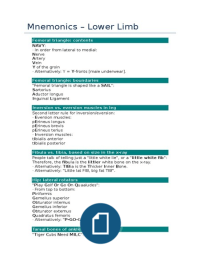Lecture notes
UC Contract law Offer and Acceptance Summary
- Module
- Contract Law
- Institution
- Cambridge University (CAM)
This is a comprehensive and detailed summary on Offer and Acceptance for Contract law. Essential!! To your success in academics!!
[Show more]




